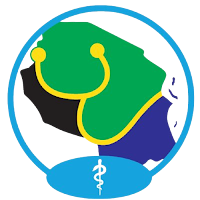Conquering Today's Health Paradox with the Power of HEAL – An Expert Consensus Report plus Research Priorities and Policymaker Roadmap
A further post will follow with full PR, but the paper is now published:
Article type: Policy Brief
Journal: Frontiers in Public Health - Public Health Education and Promotion
Manuscript ID: 1695757
Received on date: 30 Aug 2025
Abstract
Background. Despite growing scientific evidence and health guidelines, the global health paradox persists, with rising lifestyle-related diseases and escalating healthcare costs exposing the inadequacy of current efforts.
Objective. 3 multidisciplinary congresses were held to generate evidence-based conclusions to tackle the global health paradox.
Methods. 58 experts from 62 entities participated in the international research and knowledge exchange panels. Experts reviewed the latest findings to develop practical strategies, key research and policy priorities, focusing on the “Healthy Eating & Active Living” (HEAL) approach.
Results, Conclusions, and Relevance. The expert consortium endorsed a 33 evidence-based consensual-statement policy roadmap for addressing global health challenges, emphasizing the HEAL approach can significantly contribute to the “Prevention First” appeal and broad ethical, social, ecological, and economic advantages, and eventually policy change.
Wirnitzer KC, Motevalli M, Tanous DR, Drenowatz C, Moser M, Cramer H, Rosemann T, Wagner K-H, Michalsen A, Knechtle B, Fras Z, Ritskes-Hoitinga M, Marques A, Mis NF, Stanford FC, Schubert C, Goswami N, Leitzmann C, Fredriksen PM, Ruedl G, Wilflingseder D, Lima RA, Kessler C, Jeitler M, Khan NA, Joulaei H, Fatemi M, Knight A, Kratky KW, Palmer KK, Haditsch B, Jakse B, Kofler W, Pfeiffer T, Cordova-Pozo K, Tortella P, Straub S, Lynch H, Schätzer M, Krishnan A, Fathima A. S, Gatterer L, Kriwan F, Abhishek M, Nandgaonkar H, Nandgaonkar S, Adedara AO, Haro JM, Gericke C, Neumann G, Akhtar A, Rashidlamir A, Thangavelu M, Ngoumou GB, Perpék É, Klaper M, Bhattacharya B, Kirschner W, Bessems KMHH, Jones P, Peoples G, Bescos R, Duftner C, Seifert G (2025). Toward a roadmap for addressing today’s health dilemma–The 101-statement consensus report. Frontiers in Nutrition, Volume 12:1676080. doi:10.3389/fnut.2025.1676080.
https://doi.org/10.3389/fnut.2025.1676080
,-2020-_header_crop.jpg)







 orcid.org/0000-0002-0192-8965
orcid.org/0000-0002-0192-8965

